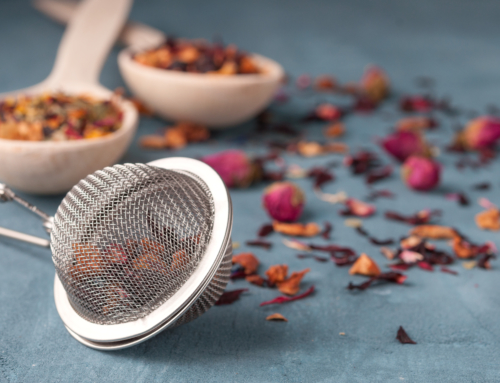
When I first heard about using gratitude to create a happier life, it made perfect sense to me. We have all heard “count your blessings”, “be thankful for what you have” and many more phrases that remind us to incorporate gratitude into our lives.
As I began incorporating it as a daily practice, I found it was very helpful…
At least at first.
I felt happier and stayed happier throughout the day. I was grateful to have a practice that helped me to recognize the beauty in my life and ultimately helped me more effectively deal with stress when it did occur.
But it did not take long for these benefits to wear off. After about 2 months, I found myself less than inspired after my morning gratitude session and the stress reducing benefits seemed to be gone.
Considering so many people swear by this practice, I was a bit perplexed as to why it lost effect for me.
My initial reaction, as is true for most people, was the blame myself.
But my gut told me to keep going and to keep trying the practice. So, I stuck with it despite feeling let down and frustrated that “it wasn’t working.”
One morning it hit me.
At the time, I was focused on naming 3 things every morning that I was grateful for. 95% of the time those consisted of only the following:
o My House
o My Husband
o My Dog
o My Friends
o My Job/Business
It looked like this:
Monday
I am grateful for….
o My dog
o My husband
o My job
Tuesday
I am grateful for….
o My friends
o My house
o My dog
Wednesday
I am grateful for….
o My house
o My husband
o That delicious meal I had last night <- new
While it was true that I am thankful for these things, I realized my mind was going on autopilot every morning and naming the first 3 that came to mind, which were the same things I had thought of the day before or the day before.
It was a habit and my answers had become habitual.
But it makes sense.
Our brains intentionally look for patterns in our lives and then our brains try to create automatic responses and habits from those patterns. This is very beneficial in many situations and makes our lives soooo much easier. You do not often think about how to walk anymore because you can do it and your brain has stored the know how of that task so that it is nearly automatic. You do not need to think about brushing your teeth either because your brain has nearly automated that task as well.
In fact, your brain tries to remove as much decision making from any task that you repeat regularly, which helps it conserve energy and gives your brain space for more important and unique decisions that need to be made.
My brain was automating my responses in order to conserve energy for other decisions I would have to make during the day because it recognized a pattern.
My brain was doing exactly what it should do.
And it killed the benefit of my gratitude practice in the process.
It wasn’t my fault that the practice lost its effect. It was a natural response to how I was implementing the practice based on how I was taught to implement the practice.
Fortunately, there are multiple ways to upgrade your gratitude practice to make it more effective so that you will really feel the benefit of the practice no matter how long you implement it.
How to Do Gratitude More Effectively
It is important to recognize that if the practice of gratitude has lost its luster for you that it is not your fault. Your brain is doing what it is supposed to do by tuning out as much of the habit as possible.
That does not mean you cannot benefit from the practice, it just means you need to do things a bit differently. It needs an upgrade of sorts.
As I experimented with different ways to practice gratitude, I found there were three techniques that significantly improved my practice.
1. No Repeats
I challenged myself to not repeat anything for a week. I was allowed to be grateful for my job on Monday but by Tuesday, that was not longer an acceptable response. Of course, I could still be grateful for it, but it wouldn’t count towards one of the three.
This alone kept me on my toes, but it also had the benefit of allowing me to see that there were so many more positive things happing in my life. This realization helped me see that I was far more fortunate than I previously realized.
2. Be More Specific. Because…
I realized that I was being super general about what I was grateful for. Yes, I am thankful for my husband, my dog, my house etc. BUT WHY? I was no longer allowed to list only the noun. I had to give a reason for it.
So, “I am grateful for my dog” became
“I am grateful for my dog because he came to cuddle me last night when I wasn’t feeling well and I was able to fall asleep faster because of it. He is such a good boy. I’m so lucky to have him.”
Or “I am thankful for my friend Z” became
“I am so thankful to have Z in my life, because she always inspires me to be more compassionate with myself. I have so much to learn from her and her inspiration helps me grow.
The updated version, using “because”, makes my gratitude practice feel at least 10 times more powerful than before.
3. Change the Question
As I began experimenting with my gratitue practice, I realized that it is actually somewhat natural for us to give the same response when asked the same question.
“How are you?”
“I’m fine.”
“How was your day?”
“It was alright.”
“What do you want for dinner?”
“Pizza”- my response 100% of the time.
We have autopilot responses to questions we are asked frequently. But if you change the question consistently, that keeps the mind active and engaged. By incorporating more specificity into the question, we are also forced to reflect a bit more.
Instead of asking myself what I am grateful for, I now will ask myself questions like
- Who are the 3 people I am most grateful for and why?
- What are the 3 things that make me feel most grateful about the current season?
- Three traits I have that make me grateful to be me are…
- What 3 things was I most grateful for at work (today or yesterday depending on when you do your practice)
- What 3 things make me grateful to live in my city?
- The three things that I am most grateful about x person (friend, boss, family member etc.) are….
Or even something like
- 3 reasons I love my house are….
By changing the question and making it more specific you get your mind out of the habit of providing the same generic answers its used to.
The Best Part
The best part is that each of these techniques works alone. You do not need to incorporate all three in to your practice. Choose one, give it a try and if it works USE IT. If you ever get to the point where you want to try something different use another one of the techniques but doing all three at once will feel so much more like a burden than a practice that’s beneficial. So, keep it simple and try just one that pops out at you.
I am certain it will significantly and beneficially impact your practice.





